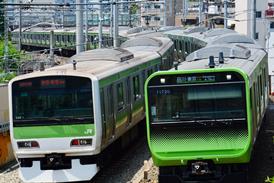Close menu
- Home
-
News
- Back to parent navigation item
- News
- Traction and rolling stock
- Passenger
- High speed
- Freight
- Infrastructure
- Policy
- Technology
- Ticketing
- Business
- Research, training and skills
- Accessibility and inclusion
- People
- Urban rail news
- Suburban and commuter rail
- Metro
- Light rail and tram
- Monorail and peoplemover
- Regions
- InnoTrans
- In depth
- Events
- Data
- Maps
- Tenders & Jobs
- Sponsored content
- Insights
Interview: ČD sees fleet renewal opportunity despite ‘tedious’ approval task
By Toma Bačić 2024-11-05T11:00:00

Michal Krapinec, Chairman & Director General of Czech national operator České Dráhy, unveils his strategy for developing domestic and international passenger services to Toma Bačić.
Already have an account? LOG IN














